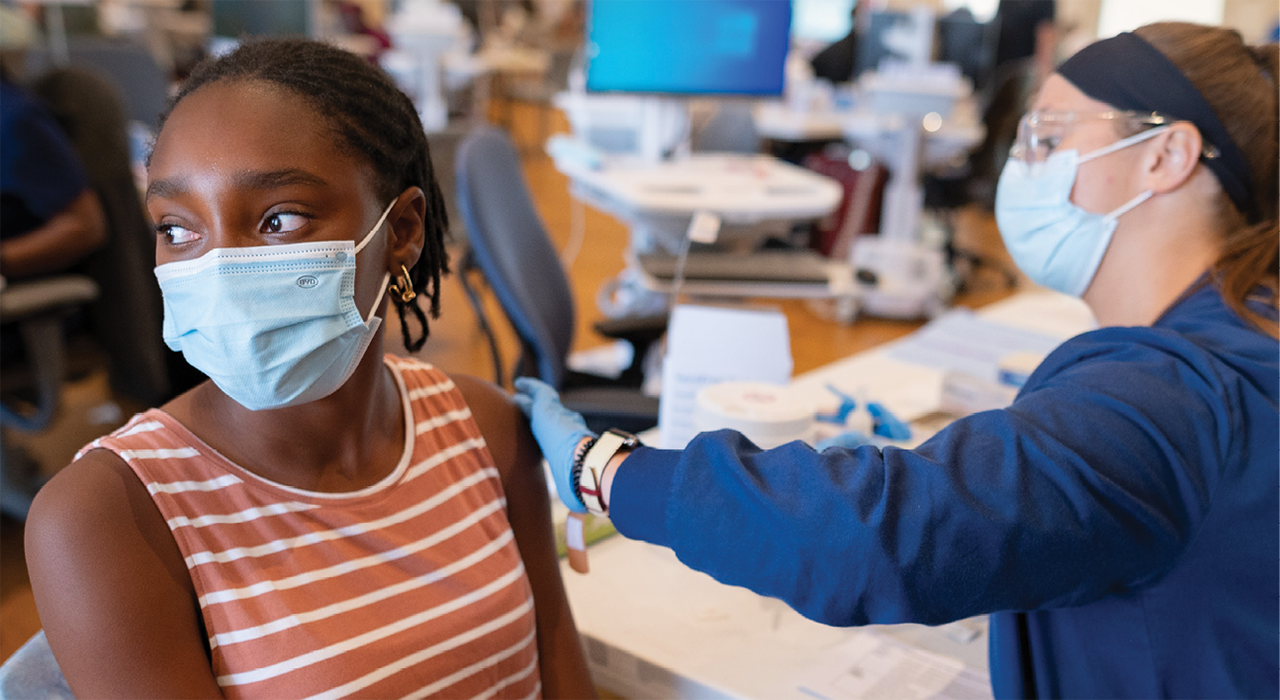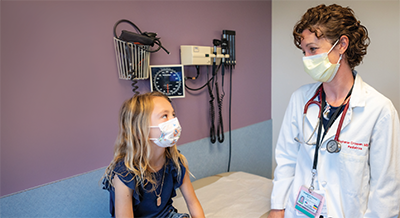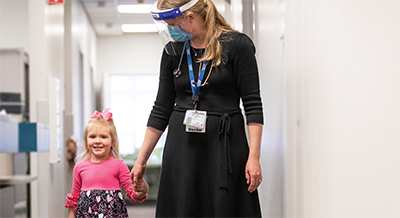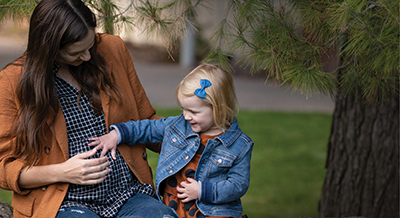Unique COVID-19 clinic for people with autism
To reduce large, noisy spaces for children with neurodevelopmental conditions, the UC Davis MIND Institute created a new clinic that offers a calm, sensory-friendly experience for children receiving the COVID-19 vaccine. Funded in part through a $68,000 grant from the Centers for Disease Control and Prevention
to the MIND Institute’s Center for Excellence in Developmental Disabilities, the clinic is a safe space that contains a VECTA sensory and distraction station, complete with a calming tube of bubbles, lights, aromatherapy and a projector that displays images on the ceiling.
Bereavement Art Group fills gap in grieving process during pandemic
To help young adults process their grief in a healthy way, UC Davis Hospice and UC Davis Children’s Hospital created the one-of-a-kind Young Adult Bereavement Art Group. Since launching in 2009 the art group has benefited 129 young adults, especially during the COVID-19 pandemic, and provides a variety of activities, including creating masks to explore evolving identities, drawing maps to identify difficult emotions and assembling memory boxes to remember loved ones.
Virtual group supports children through a caregiver’s illness
The UC Davis Child Life and Creative Arts Therapy Department launched Coping Together, a new virtual support group for children and adolescents who have a parent or caregiver with a serious illness. Using art materials, the group provides opportunities for sharing, self-expression and coming together to explore coping strategies.
Our continued response to the coronavirus
UC Davis Health has played important roles both locally and nationally in responding to the novel coronavirus pandemic. Our teams have continued to conduct studies to better understand the virus and how it impacts people’s health and community.
Some of our current pediatric clinical studies include:
- Understanding the presence and lifespan of SARS-CoV-2 in infant stool after infection.
- The characterization of multisystem inflammatory syndrome (MIS-C) in children, its relationship to Kawasaki disease, and how the body responds to inflammation caused by Kawasaki disease and MIS-C in relation to COVID-19.






